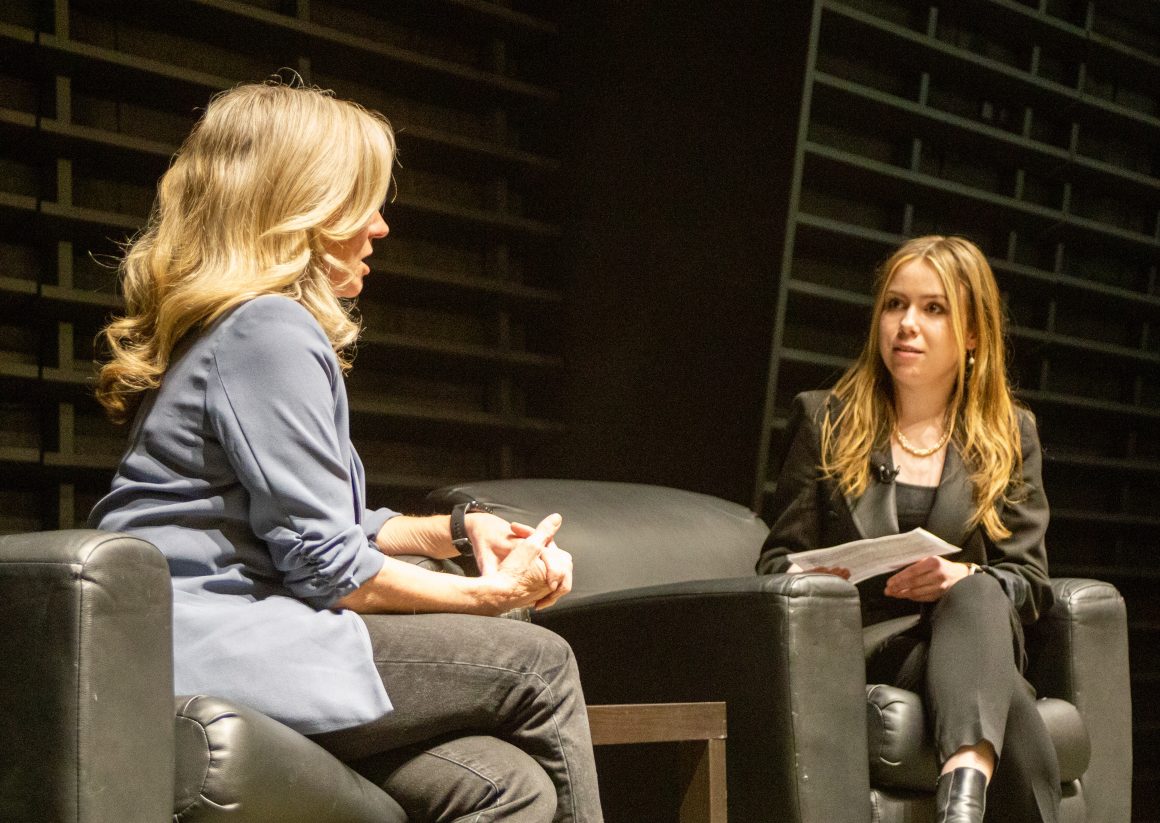
Q&A session with Rachel Notely announces major supports for students
By Sheroog Kubur, April 5 2023—
The leader of the New Democratic Party (NDP), Rachel Notley, came to the University of Calgary last night for a Q&A session with students. The session was moderated by Students’ Union President Nicole Schmidt and students were able to ask questions by texting in.
The topics of discussion included announcements from Notley about the NDP’s platform and how it would support students regarding tuition, financial aid and broader concerns in the city. Schmidt disclosed that the United Conservative Party (UCP) leader Danielle Smith declined a request for a similar event.
Schmidt opened by discussing what she calls an “intergenerational loss of opportunity.” Students at U of C are paying 33 per cent, or $12,000, more annually for tuition alongside a 20 per cent increase to mandatory fees as a result of cuts to post-secondary funding. This also includes an elimination of tuition tax credit and increased interest rates on student loans. She noted the rally against tuition hikes on Jan. 20 as a marker of students advocating for themselves and seeing results.
“When we become unafraid of speaking truth to power, whether that power is university administration or the board or the provincial government, when we become unafraid to advocate for what we need and for what we deserve, that’s when we’re most effective in that our cost,” she said.
Schmidt also highlighted the inaccessibility of mental health supports as a major barrier to students, with U of C students receiving one visit to the Student Wellness Centre before they are referred to community services that must be paid out of pocket.
Notley announced in her opening statement that the NDP plans to freeze tuition to 2022-2023 levels if elected. They also plan on ensuring that no tuition increase will surpass inflation, reduce barriers to receiving student aid, and the return of the Summer Temporary Employment Program (STEP).
“I want to get back to respecting our post-secondary institutions for the engines of the economy that they are and making sure that every student who comes through these doors feels supported, financially secure and ready to be the leaders,” she said.
Notley also said she would implement five free sessions for mental health support for all Albertans, an increase in rental assistance funding for students and make all forms of contraception universally accessible free of charge.
Notley expanded on what she believes to be the biggest barriers facing Albertans and students today, citing affordability and the state of the healthcare system as the two biggest.
“The fact that [post-secondary education] is becoming so expensive means that that opportunity is not available to people and it means their opportunities are limited,” she said.
“Of course, I think that that hurts the economy, and it hurts the community as a whole.”
Schmidt asked about food insecurity for students and the impact it has on their education. Notley mentioned the development of an unnamed “anti-poverty paper” that would expand accessibility to rental assistance programs and the development of a student leaders council that would invite students to discuss their issues with other stakeholders in the province.
“Alberta is one of our biggest advantages and has been that we are in fact the youngest best-educated province in the country,” Notley said. “We need to be more creative on how we maintain that success, understanding that we’re going to look at it and need different tools. So the idea was to bring together as students, other young people, municipal leaders, development provincial ministers, some business leaders to basically come up with a strategy for what we do to make this province attractive to young folks.”
Notley highlighted the diversification of the economy as a priority for the NDP and the development of a knowledge-based economy to create more opportunities for students and attract more young people from across the world.
“We will work with our universities and our colleges to reinvest in programming in research and innovation. Research into environmental solutions into medical insights into scientific innovation, and more. And then we’ll turn those breakthroughs into jobs because the US should be a hub for economic innovation and growth,” she said.
